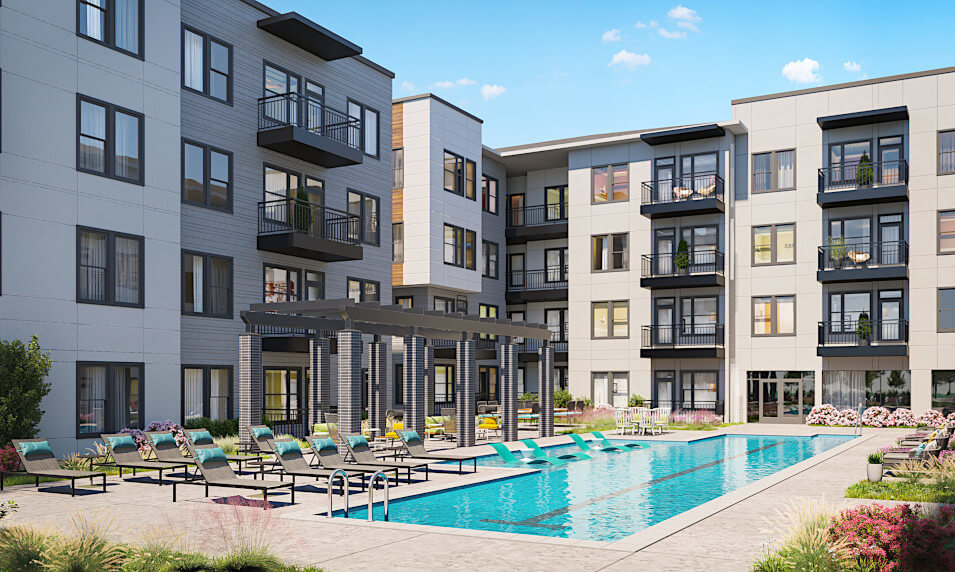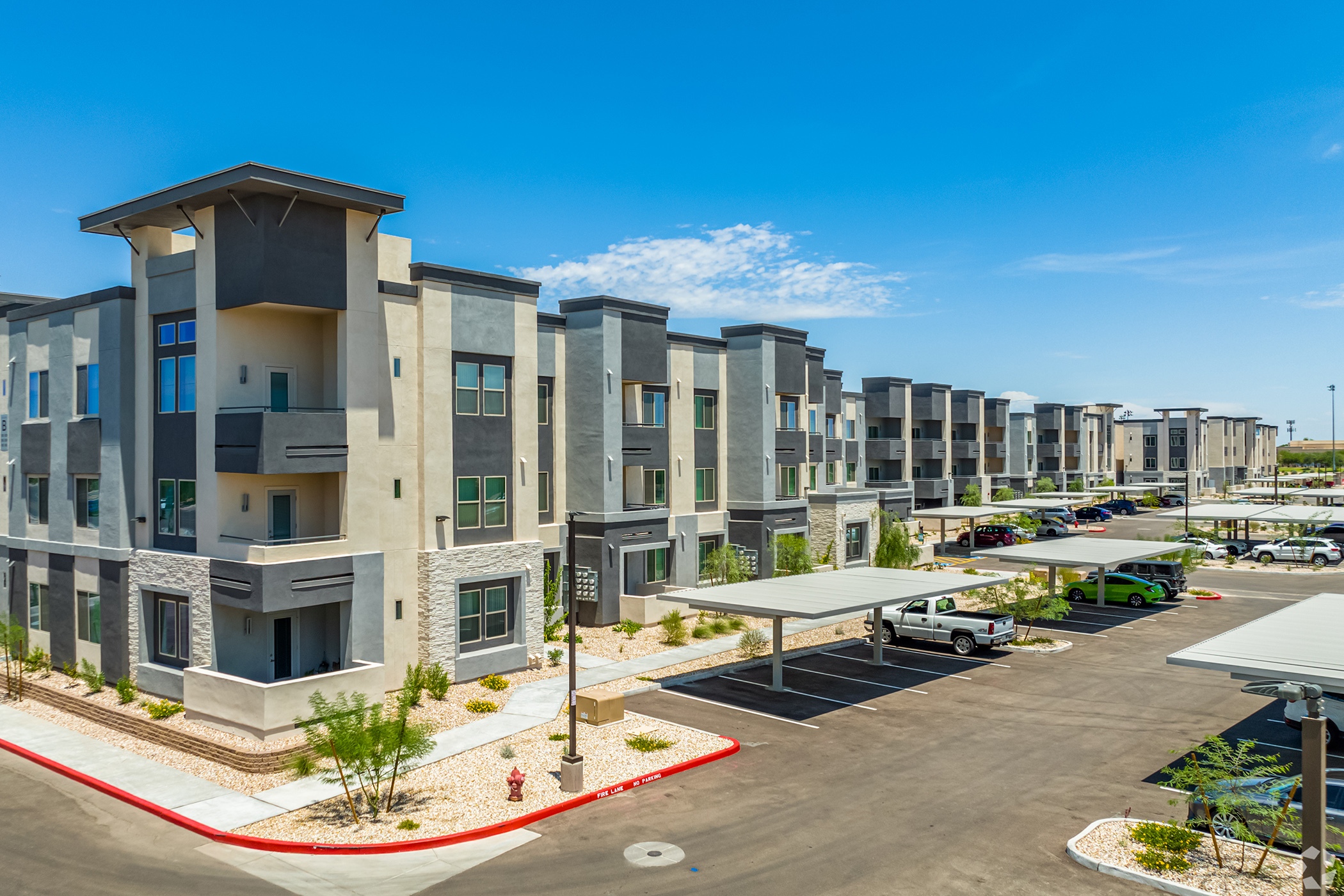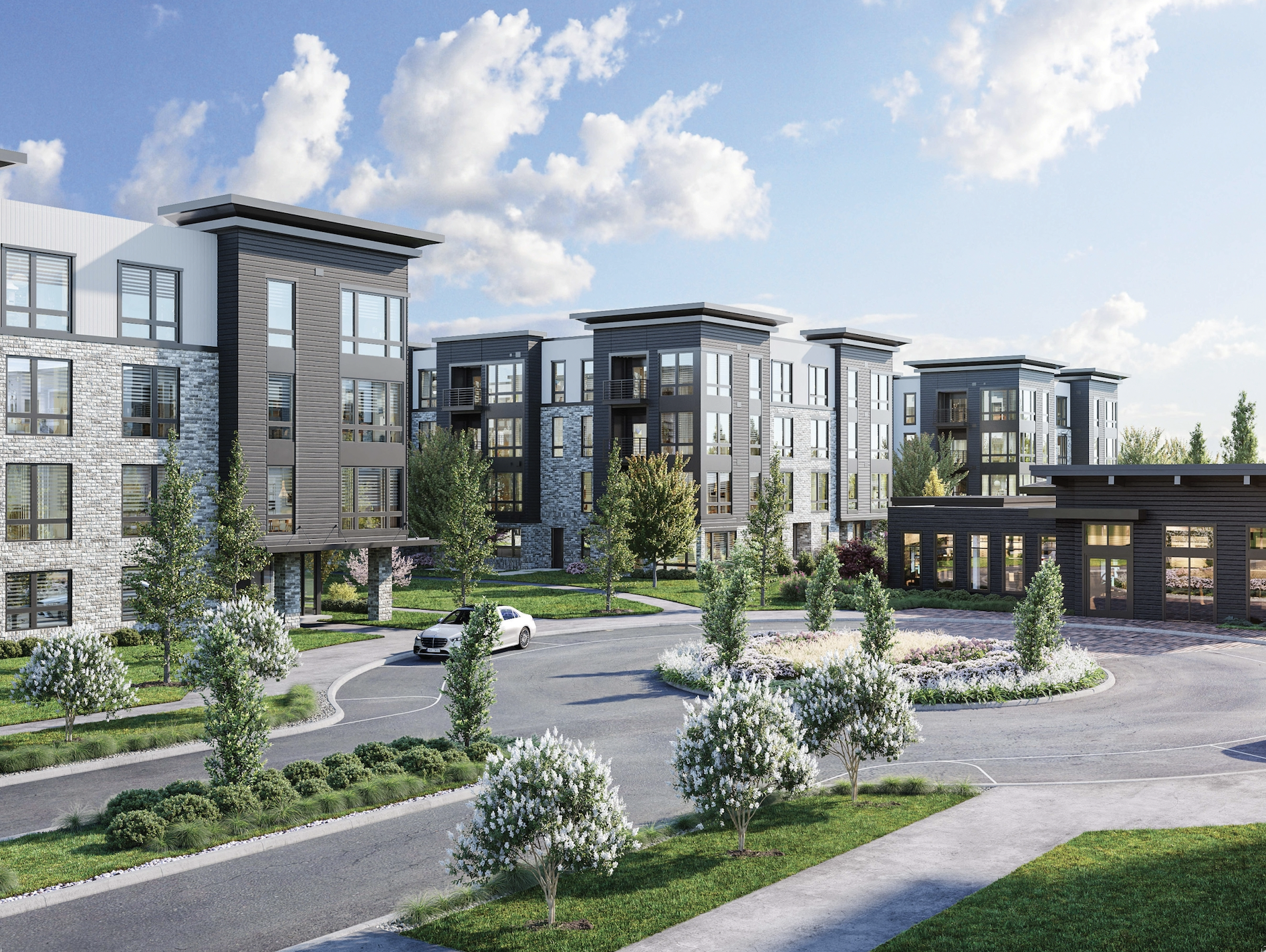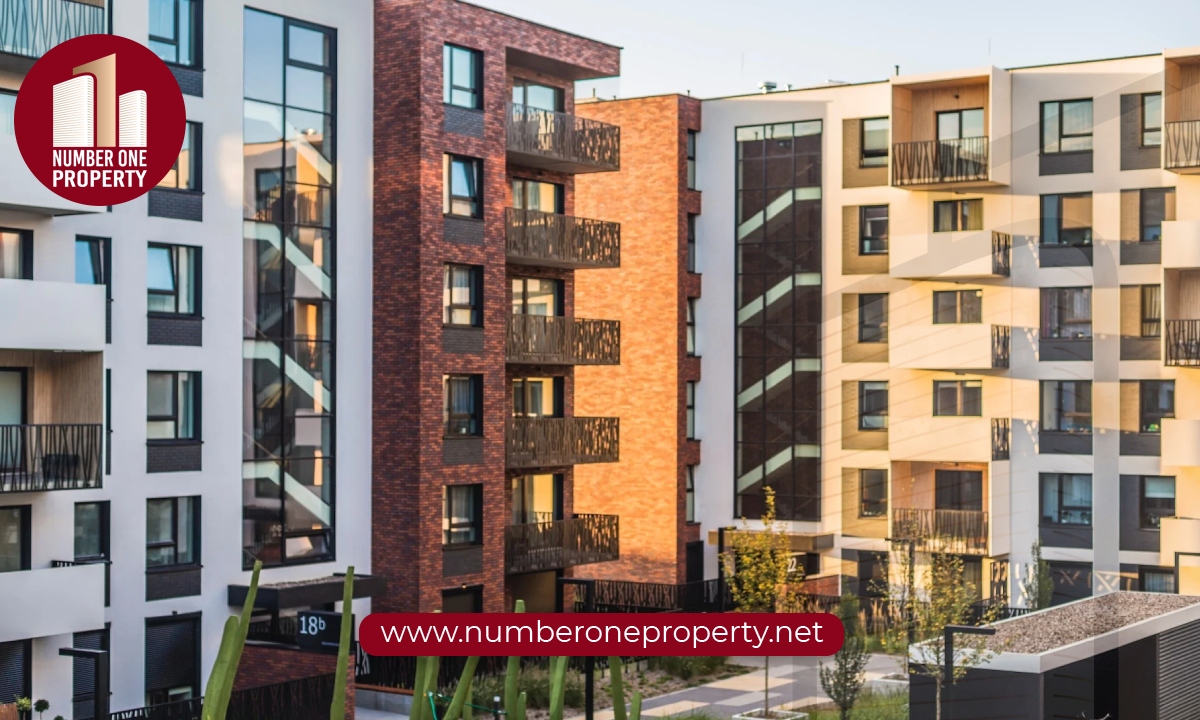Buying property in an complex can be a significant investment, whether you are looking for rental income or want to expand your investment portfolio.
Buying a building or a residential complex is a huge investment that only some investors make because it requires huge capital. However, the return on this investment is also very high.
In this article, we'll cover everything you need to know about buying an apartment complex, from finding apartment buildings to understanding the different financing options.
We will also consider the key factors, such as property management, operating expenses, and potential rental income, to help you make an informed decision.
1. Understanding Apartment Complexes and Their Benefits
An apartment complex, sometimes called an apartment building, is a residential property with multiple apartment units. Unlike single-family homes, apartment buildings are designed to house multiple tenants, which means they offer the potential for increased rental income and lower maintenance costs per unit.
One of the primary benefits of buying an apartment complex is that it provides multiple rental income streams. With several apartment tenants contributing to the property's cash flow, owning an apartment complex can be a good investment for real estate investors looking for consistent monthly rent payments.
Moreover, apartment buildings have been appreciated, particularly in high-demand areas with a strong local real estate market.
2. Different Classes of Apartment Buildings
Before buying an apartment building, it's essential to understand the different classes of apartment complexes and their characteristics.

Class A Buildings
These are newer buildings, often in desirable areas, with modern amenities and high-quality finishes. They tend to attract high-income tenants and command higher rental rates. However, Class A buildings come with a higher purchase price.
Class B Buildings
These are slightly older apartment complexes with fewer amenities than Class A properties. They are often found in stable neighborhoods and are famous for real estate investors because they balance affordability and rental income potential.
Class C Buildings
These are older properties, usually built 20-30 years ago, and may need renovations. They tend to attract middle or lower-income tenants and can be a good investment if you're willing to manage higher maintenance costs and make upgrades.
Class D Buildings
Older buildings in less desirable areas often require extensive repairs. They usually have lower purchase prices but have high tenant turnover and increased management demands.
3. Finding the Right Apartment Complex to Buy
When buying an apartment complex, the first step is to find apartment buildings that match your investment criteria. You can start by working with a real estate agent specializing in commercial real estate who has experience dealing with apartment buildings.
Real estate agents can help you identify off-market and similar properties that meet your needs.
Another strategy is to research the local real estate market yourself. Look for opportunities to buy an apartment building at a reasonable price and where there is potential for market value appreciation.
Consider factors such as neighborhood quality, proximity to schools and amenities, and the overall demand for rental units.
4. Financing Options for Buying Apartment Buildings
Buying an apartment complex requires substantial capital, and securing financing is a vital part of the process. Here are some standard financing options for an apartment building purchase:
Commercial Loans: These loans are designed for investment properties like apartment buildings and have different terms than residential loans. They may require a larger down payment, usually around 20-30%, and have a shorter repayment period.
Bank Balance Sheet Loans: These loans are held on the bank's balance sheet, meaning they do not sell the loan on the secondary market. They tend to be more flexible than other types of financing
Seller Financing: In some cases, the seller of the apartment building may offer financing directly to the buyer. This can be advantageous if traditional funding is challenging to obtain.
Non-Recourse Loans: With these loans, the lender can only seize the property as collateral and not pursue the borrower's assets. This type of financing is often used for more significant investment properties.
Recourse Loans: These loans allow the lender to pursue personal assets if the borrower defaults. While they carry more risk, they may also have more favorable terms.
5. Key Factors to Consider When Buying an Apartment Complex

Purchase Price and Market Value: Determine whether the purchase price aligns with the property's current market value. Compare similar properties in the area to assess whether the price is fair.
Down Payment and Financing: Understand the down payment amount and available financing options. Ensure you can secure a loan with terms that align with your investment strategy.
Cash Flow and Rental Income: Evaluate how much income you can generate from the apartment units after accounting for operating expenses. Positive cash flow is essential for a successful investment.
Operating Expenses: Consider all operating expenses, including property taxes, maintenance, and property management fees. Operating expenses will directly impact your net operating income (NOI), a key metric in evaluating an apartment complex's profitability.
Property Management Company: Decide whether you want to hire a property management company to handle day-to-day operations, such as finding tenants, collecting rent, and managing maintenance. A professional management company can help reduce high tenant turnover and ensure a steady flow of rent-paying tenants.
Existing Leases and Rent Rolls: Review existing leases and rent rolls to understand the current rental income and the lease terms for all the units. Be aware of when leases are set to expire and whether there are any vacant apartment units.
6. Cash Flow Analysis: Net Operating Income and ROI
To determine whether buying an apartment complex is a good investment, conduct a cash flow analysis and calculate key metrics such as Net Operating Income (NOI) and Return on Investment (ROI).
Net Operating Income (NOI): This is calculated by subtracting operating expenses from the total rental income. A higher NOI indicates better profitability for the property.
Return on Investment (ROI): ROI measures the profitability of an investment. It is calculated by dividing the net profit by the initial investment. A higher ROI indicates a more profitable investment property.
Income Approach: The income approach is often used to determine the value of an investment property. It involves calculating the property's value based on its income, which helps determine its market value.
7. Managing an Apartment Complex
Once you buy an apartment complex, effective management is crucial to maximizing your rental income and maintaining a positive cash flow. You can hire a property manager or a property management company to handle daily operations, including tenant management, rent collection, and maintenance.
Hiring a Property Manager: A property manager can help manage the apartment building on your behalf, reducing the workload of managing multiple tenants. Property managers are instrumental in dealing with high tenant turnover and ensuring tenants comply with lease agreements.
Property Management Company: A property management company offers a comprehensive range of services, including marketing vacancies, screening tenants, and handling repairs. While they charge a fee for their services, they can help maintain the quality of the property and ensure consistent rental income.
8. Amenities and Attracting Tenants
Apartment complexes often include amenities that attract tenants and justify higher rental rates. Amenities like coin-operated laundry facilities, parking spaces, and on-site gyms can make your property more desirable to renters. However, providing amenities also increases maintenance costs, so weighing the benefits against the expenses is essential.
Parking Spaces: Rent parking spaces to tenants who own vehicles, as this can be an additional source of income.
Coin-Operated Laundry Facilities: Installing coin-operated laundry facilities can generate additional revenue while providing a convenient amenity for apartment tenants.
Fewer Amenities for Lower Maintenance Costs: Some investors prefer apartment complexes with fewer amenities, which results in lower maintenance costs and operating expenses. This strategy may be suitable for Class C and Class D buildings.
9. Tax Benefits of Buying an Apartment Complex
Real estate investing offers several tax benefits, especially for those who buy apartment complexes. Investors can benefit from depreciation deductions, which reduce taxable income, as well as deductions for mortgage interest, property taxes, and operating expenses. Additionally, owning an apartment complex can offer opportunities for long-term capital gains, which are taxed at a lower rate compared to ordinary income.
10. Challenges of Buying an Apartment Complex

Buying an apartment complex requires careful consideration of several challenges, including:
High Purchase Price: Apartment complexes often have a high purchase price, requiring a substantial down payment and financing.
High Tenant Turnover: High tenant turnover can be challenging and costly. A property management company can help minimize turnover by maintaining tenant satisfaction.
Operating Expenses: An apartment complex's operating expenses can be significant, including maintenance, property taxes, and management fees. Ensuring that rental income exceeds these expenses is critical for maintaining positive cash flow.
Finding Financing: Securing a commercial loan or other financing options may be challenging, especially for first-time investors. Banks may require detailed financial records, a property survey, and evidence of cash flow before approving a loan.
11. Steps to Buying an Apartment Complex
Step 1: Determine Your Investment Goals: Decide if you want monthly rental income, long-term appreciation, or both. Your goals will guide your decision-making process.
Step 2: Assess Your Financial Situation: Evaluate your assets and determine how much you can afford for a down payment. You should also assess your ability to qualify for a commercial loan or other financing options.
Step 3: Find Apartment Buildings: You can work with a real estate agent or search for off-market properties that meet your criteria.
Step 4: Conduct Due Diligence: Perform a property survey, inspect the property, and review rent rolls and financial records. Ensure that you understand the condition of the building and the potential for rental income.
Step 5: Make an Offer: Determine a purchase price and negotiate with the seller. If traditional financing is not available, you may also consider seller financing.
Step 6: Secure Financing: Work with your lender to finalize your financing and obtain a loan to cover the purchase price.
Step 7: Close the Deal: Complete all the necessary paperwork and finalize the apartment building purchase.
Conclusion
Buying an apartment complex can be a rewarding investment that offers rental income, tax benefits, and potential appreciation.
Whether you are looking to buy an apartment building as your first property or to expand your existing investment portfolio, you must consider the purchase price, operating expenses, financing options, and management strategy.
Understanding the local market and working with real estate agents can help you find apartment buildings that meet your investment goals. By carefully analyzing cash flow, net operating income, and market value, you can make an intelligent investment decision to contribute to your long-term financial success.
With the right approach, buying an apartment complex can be a good investment that provides a steady income stream and growth opportunities. However, it requires careful planning, thorough research, and a clear understanding of the responsibilities involved in managing multiple tenants and maintaining a large property.
Related Articles:
Revenues of Residential Complex in Türkiye
Features of Residential Complexes in Istanbul
Istanbul residential complexes .. an important urban revolution
The Pros and Cons of Buying Property in a Gated Community


